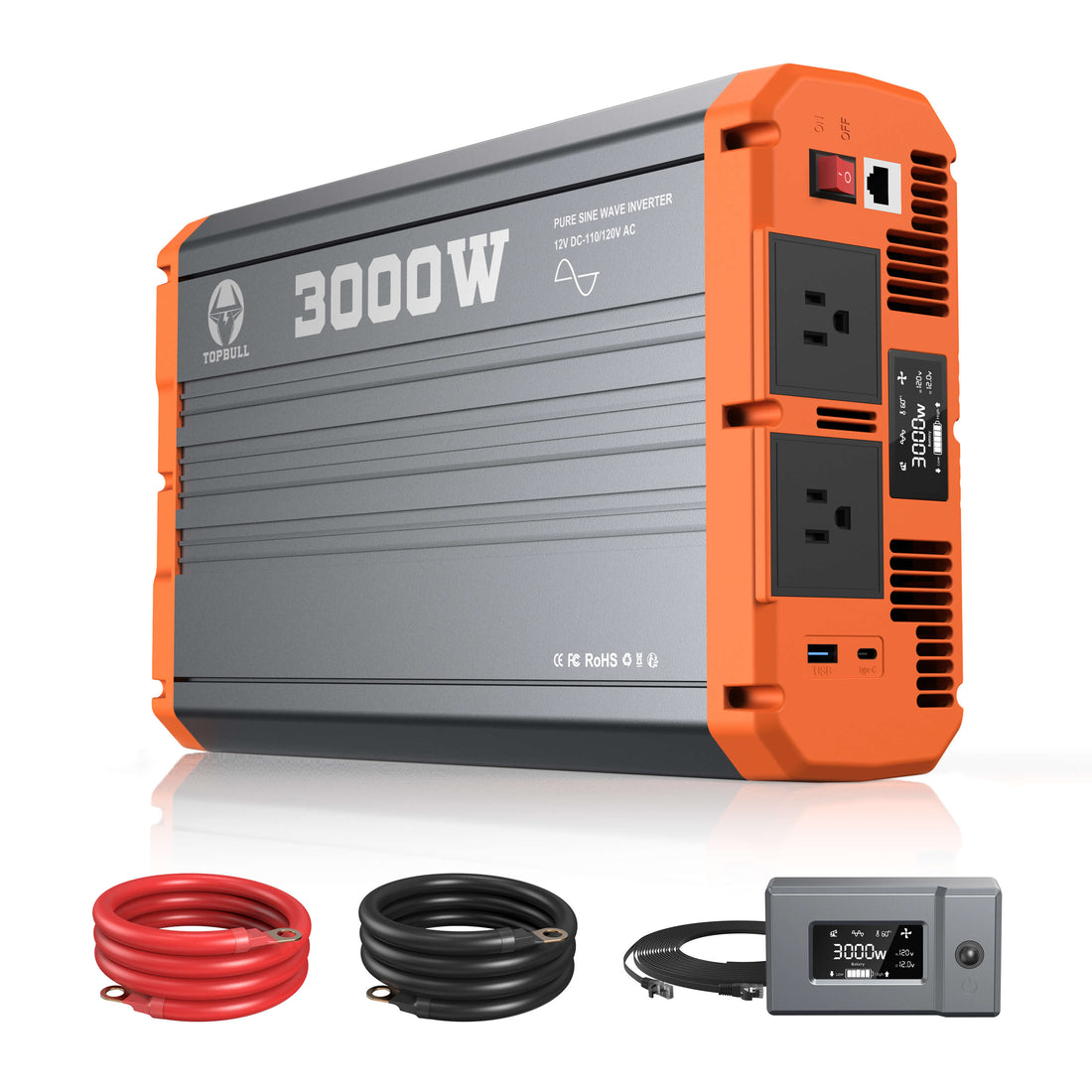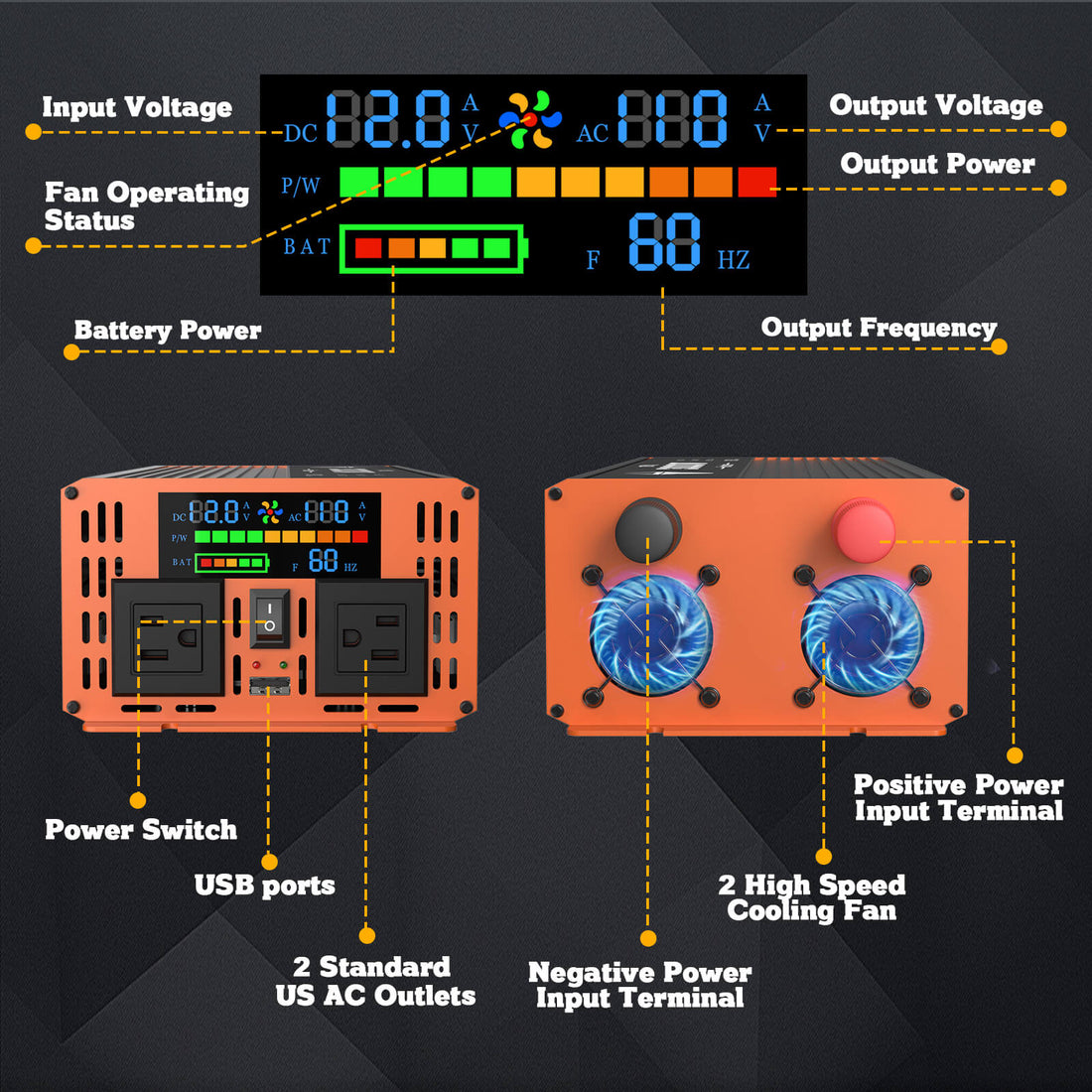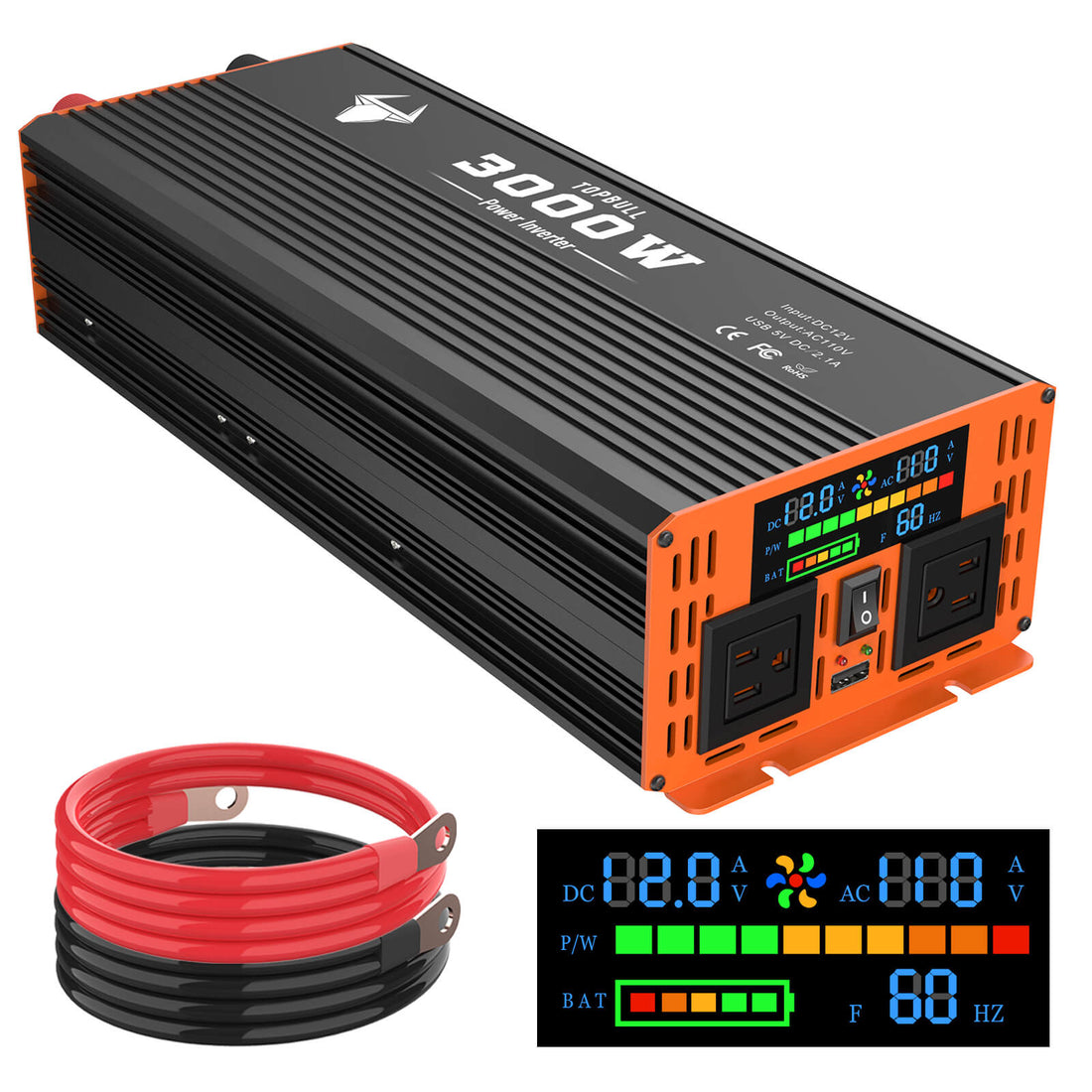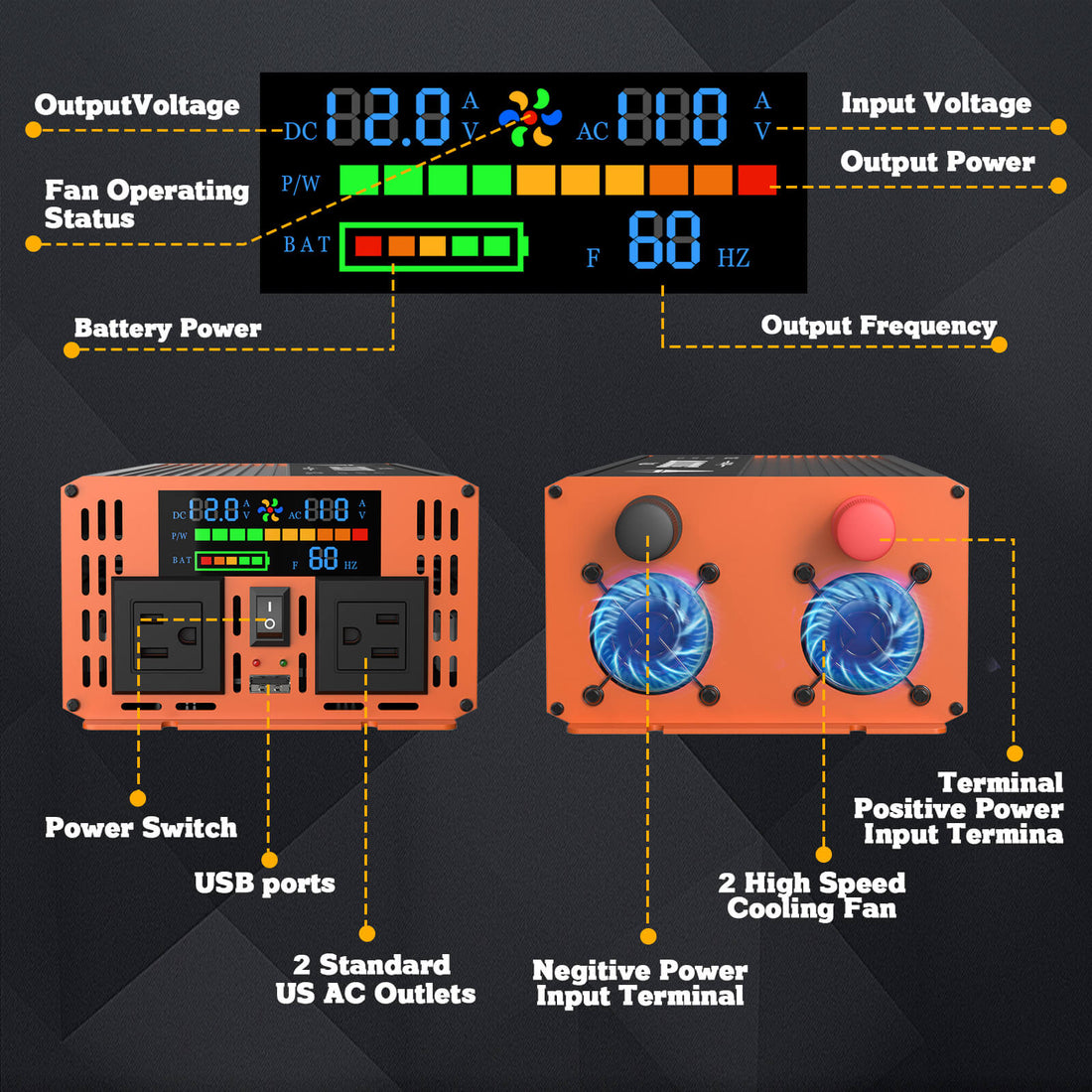Off Grid Inverters
Topbull's high-end off-grid inverter, built for off-grid solar systems, ensures efficient utilization of solar energy. Adopting cutting-edge technology, it is easy to install, easy to maintain, and the power conversion is efficient and durable. No matter remote areas, outdoor adventure, farm work or emergency power outage, it can provide stable power.
Discover now and start a new chapter of your off-grid power generation!
Sort by
- Featured
- Best selling
- Alphabetically, A-Z
- Alphabetically, Z-A
- Price, low to high
- Price, high to low
- Date, old to new
- Date, new to old






















